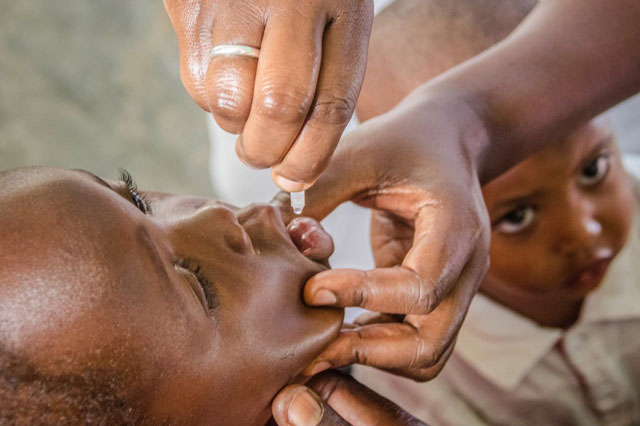
Copenhagen, Denmark | AFP | The World Health Organization’s European office warned Thursday that to keep other infectious diseases in check, vaccination programmes must remain a priority even during the coronavirus pandemic.
The warning came as the UN body noted that while the spread of the novel coronavirus seemed to be “plateauing in western Europe, the gradient of the epi-curve steepens as we look east”.
“Immunisation services are essential. If they have been interrupted, catch-up measures must be taken as quickly as possible,” WHO regional director for Europe, Hans Kluge, told a press conference.
“We cannot allow the impact of COVID-19 to be amplified by neglecting other vital health protection measures,” Kluge added.
WHO’s European branch was particularly concerned about a resurgence of measles, which affected 6,000 people on the continent in the first two months of this year.
“Immunisation has never been more important,” said Siddhartha Datta, programme manager for vaccine-preventable diseases and immunisation at WHO Europe.
“Measles and other infectious diseases are very much here amongst us and the time to prevent them is now,” Datta added.
To this end, countries need to ensure that health systems are set up to be able to work in parallel to those dedicated to the care of those suffering from COVID-19.
“Dual track health systems can offer the flexibility and resilience needed to manage repeated waves of coronavirus infections and the increasing demand for other services,” Kluge said.
WHO’s European branch has recorded more than 1.4 million confirmed cases of the new coronavirus and 129,344 related deaths.
The organisation noted that Spain, followed by Italy, Britain, Germany and France still had the highest number of cases, but thanks to social distancing and lockdown measures “a plateau or reduction in the number of new cases” could be noted.
However, in Belarus, Kazakhstan, Russia and Ukraine, the number of cases has increased over the past seven days, while infections have stabilised in Turkey.
 The Independent Uganda: You get the Truth we Pay the Price
The Independent Uganda: You get the Truth we Pay the Price



